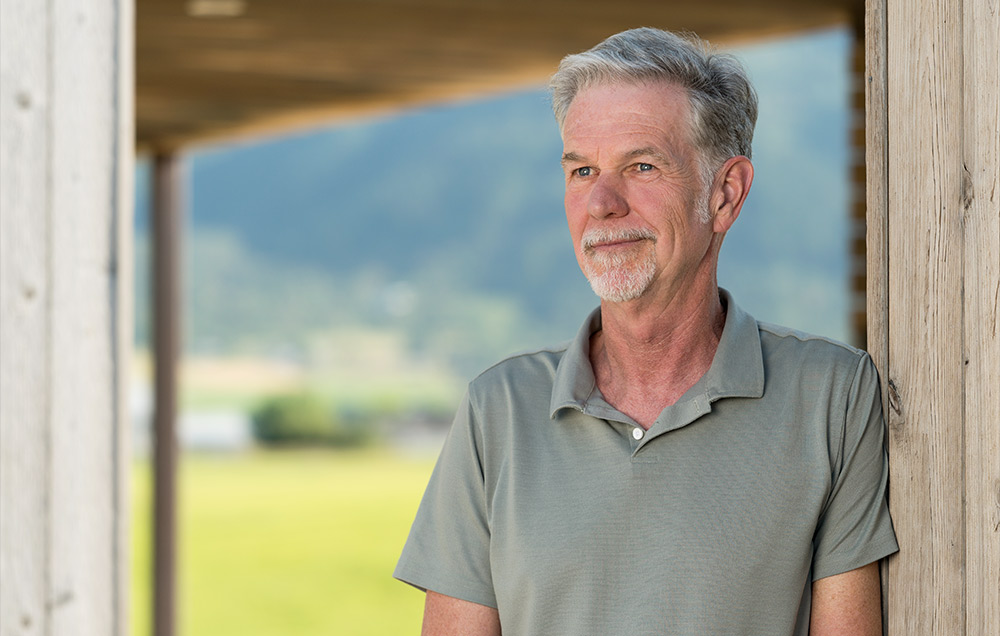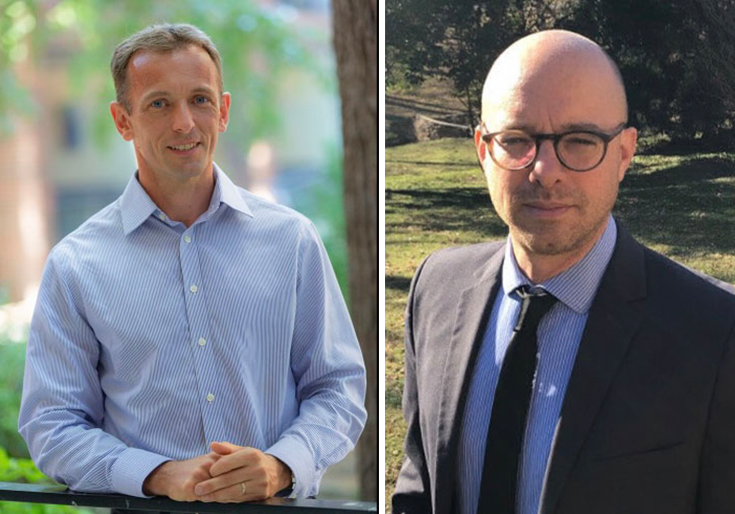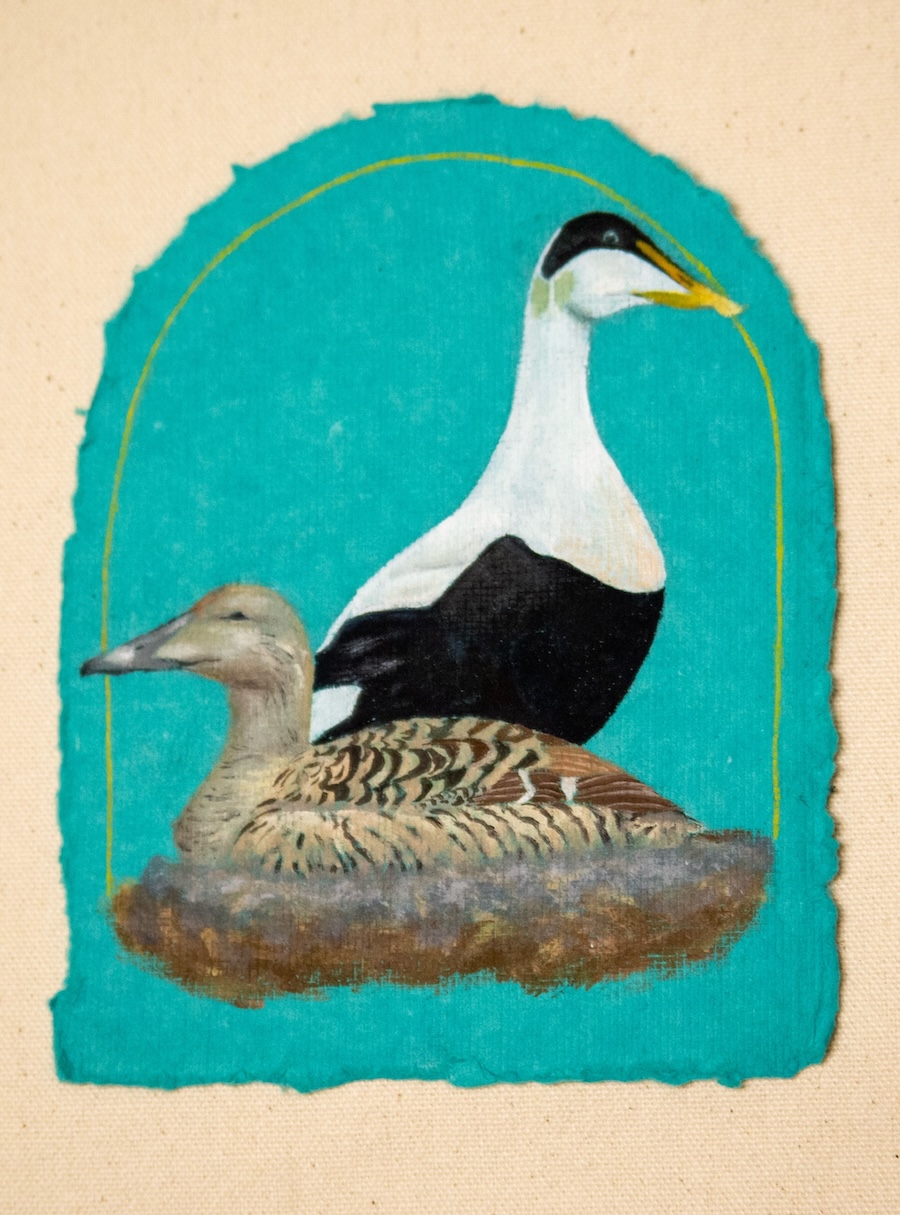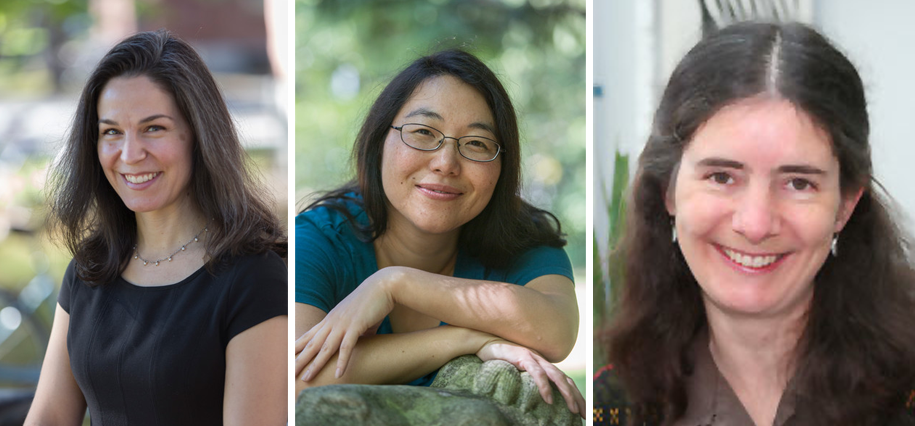Visiting Artist, Filmmaker Lyès Salem Inspired by French-Algerian Roots
By Tom Porter
The Francophone Film Festival kicks off at Bowdoin on November 4, 2016, with a screening of L’Oranais, or The Man From Oran, to give it its English subtitle. The 2014 movie is the second feature film from acclaimed French-Algerian actor-director Lyès Salem, the current visiting artist in Francophone studies.
The movie, which has won multiple awards in overseas film festivals, examines events in Algeria in the years following that country’s independence from France in 1962. It tells the story of two characters in particular, fellow revolutionaries and comrades during the war against France, driven apart in the years following independence, and how their revolutionary ideals were compromised over time. The movie, in which Salem also stars as one of the lead characters, was made in Algeria, but unlike previous Algerian movies about the independence struggle, it dares to criticize some aspects of the revolution. “I didn’t want to make another war film about the heroic victory of the Algerians against the might of the French military,” said Salem. Instead, he said, he chose to focus on what happens when the euphoria of independence has subsided, and to take a more critical and nuanced look at how Algeria has evolved.
When L’Oranais was released in Algeria last year, Salem said many people welcomed it “because I think it’s the first film to put a human face on the Algerian resistance, rather than portray them as all heroes.” More conservative voices in Algeria, however, did criticize the film, he said, viewing it as disrespectful to those who died in the revolution. For Salem, though, L’Oranais represents an opportunity to look to the past to answer questions about today. “The message of the movie is really ‘what can Algerians do to adhere to the goals set by the independence movement all those years ago?'”
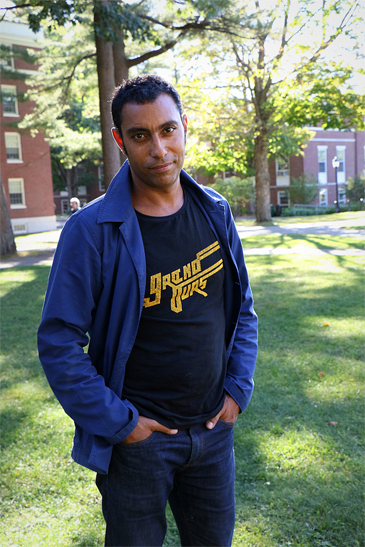
Such questions resonate deeply with Salem, who has roots in both France and Algeria. Born in Algiers in 1973 to a French mother and Algerian father, he was raised in what he described as a “double culture.” His first love was acting, and after studying literature at the Sorbonne in Paris, Salem trained as an actor at the equally prestigious Conservatoire. “I always dreamed of being an actor and did everything possible to become one,” he said. He worked in theater, film, and television, but as the situation in Algeria deteriorated in the 1990s amid a bloody civil war, Salem felt increasingly inclined to explore his own Algerian identity, and the challenges faced by Algerians living in France.
“My parents encouraged me to embrace the two cultures I came from, but many people on both sides are reluctant to integrate,” said Salem. For example, he recalled, he once had a French girlfriend whose parents objected to the relationship purely because he was from Algeria. A desire to explore these issues led him towards writing, and Salem’s award-winning directorial debut—a short film called Jean-Farès—was about the dispute between a mixed race couple over what to call their child: a French name or an Arabic one?
Salem’s second film, Cousines, won the prestigious Cesar award in 2005 for the best French language short film. In 2007 he shot his first feature film, Masquerades, a comedy which was released in the United States in 2009. It was nominated for the Best First film by the César Academy and chosen as the Algerian entry for the Best Foreign Film at the Oscar Academy Awards.
During his semester at Bowdoin, Salem is running a French language seminar in Creative Writing and Filmmaking (FRS 3215 / CINE 3351). “I work with eighteen students and by the end of the semester we hope to have made one or two short films, in French.” Salem said it’s relatively easy to make a film today: “All you need really is a camera and a laptop computer, so the main goal of the seminar is how to write a story with a beginning, a middle, an end, and importantly, a message.”
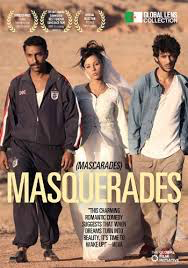
Salem is a strong believer in the power of film, and as a director he hopes to affect positive change in people’s lives. “This is probably naïve,” said Salem, “but as a director I want to change the world. I want to ask questions and encourage the audience to see the world differently.” He said he wants to use his films to help Algerians explore their identity. “A lot of Algeria’s culture was destroyed during the French colonization, which lasted more than 130 years,” he said, “and I think the medium of film is one way I can help Algerians today to examine their own culture and history, and to think about their identity.”
France and Algeria have a huge and complicated history, said Salem. ‘It’s a history that goes back centuries, but also lies at the heart of many of the problems faced by those two countries today.” He’s planning to draw on such weighty subject matter for his third feature film, albeit with a light-hearted touch. “I’m currently writing my next movie,” he said. “It’s a comedy, called A Pig in the Heart, set in France, about, again, the clash between French and Algerian cultures, between Christian and Muslim communities. It’s a complex situation,” Salem admitted, “so the challenge is to find a way of telling that story that will connect with people.”
The Francophone Film Festival runs until November 20, 2016, and gets underway on November 4, with a screening of L’Oranais, followed by a discussion led by Lyes Salem. Screenings are at 7 p.m. in the Kresge Auditorium.
